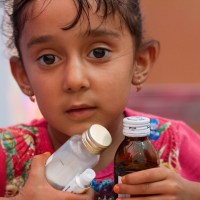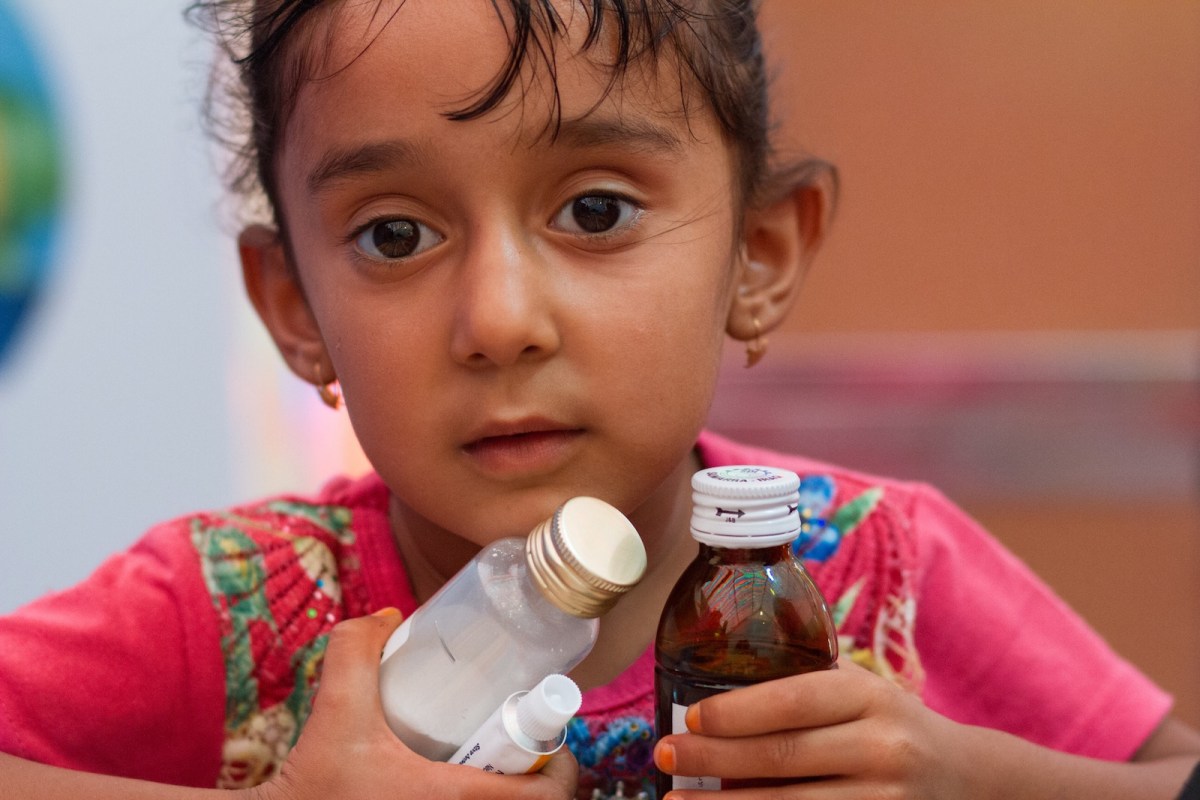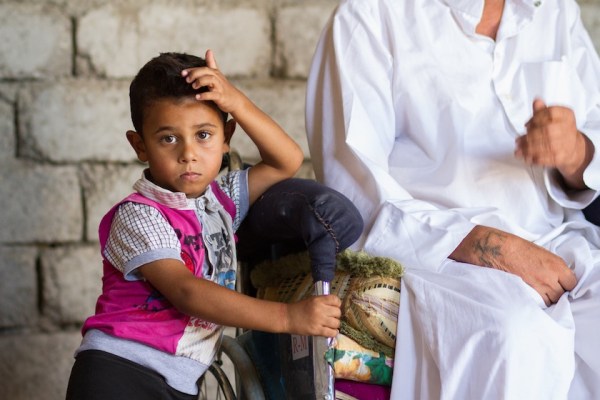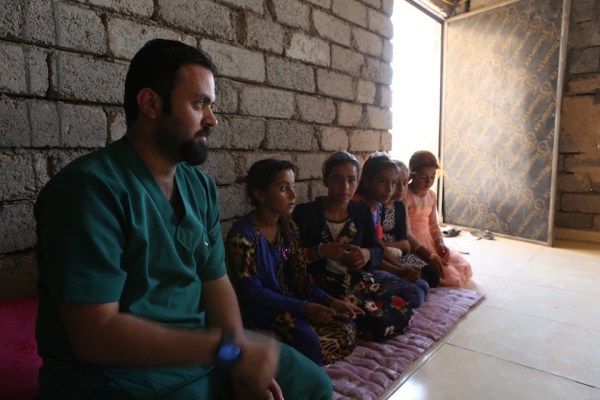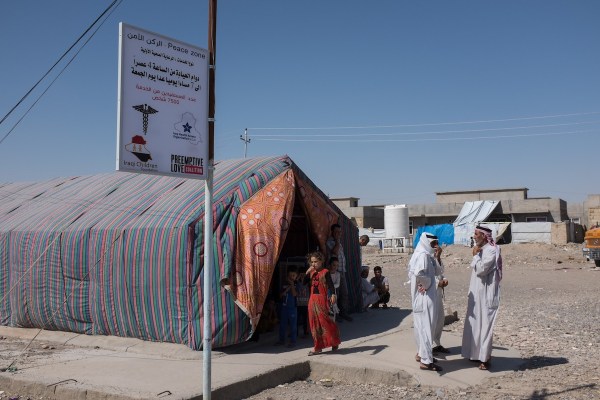You have to talk loudly inside the tent to be heard over the sound of the air cooler and the generator that powers it. No one complains, though. At the peak of summer, it’s over 122 degrees outside. The simple act of breathing is enough to start a sweat.
The waiting room is packed full. This is no ordinary tent, you see. It’s a bustling medical clinic tucked inside a dusty makeshift camp, filled with Iraqi families who narrowly escaped war.
Despite extreme conditions, the clinic functions smoothly. The waiting room manager tracks each patient as they arrive, ushering them behind a little curtain in the examining room. The nurse checks vital signs and records results on little slips of white paper, which patients give to the doctor. The doctor asks questions and listens closely.
Whether seeing someone with a new ailment or following up on treatments started weeks earlier, in every case the doctors allow each patient to feel heard before making a diagnosis. Time is made to listen to hard stories that mark the lives of displaced families.
If medication is needed, the doctor reaches over to a cabinet a few feet away to select the correct bottle or blister pack. Then plans are made for patient follow-up.
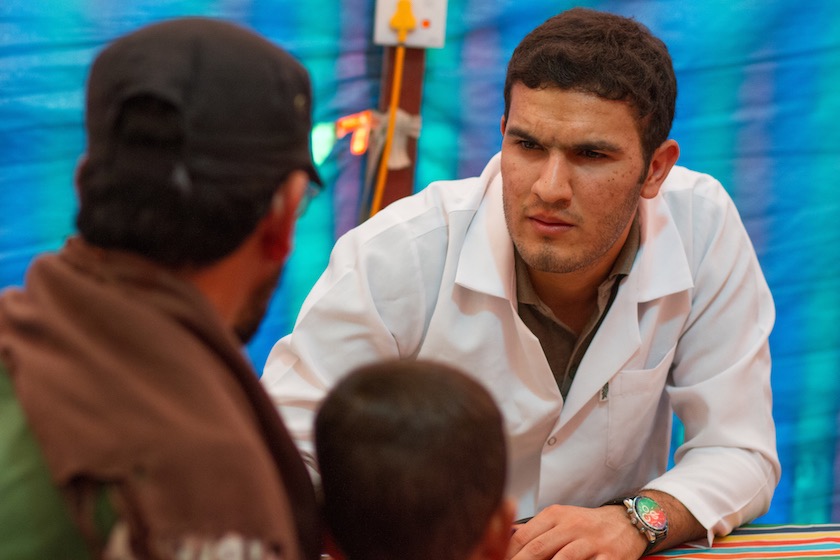
Displaced Doctors Serving Displaced Families
“I was displaced, so I know what the people will face. They are vulnerable people, and they need special care. Being here is a great chance to help them.”
Dr. Qudama and his family had to flee their home when ISIS targeted their city early in the war, he tells us between patients. Now he serves families who were were forced to run just like he was.
Dr. Mustafa was displaced from Mosul by violence before the war even started. The nurse, the waiting room managers… everyone working in this clinic was forced from home, just like the patients.
This medical clinic, nicknamed the “Peace Zone” and situated in a displacement camp called “Dream City,” perfectly illustrates the way we invest in healthcare in Iraq. We work with committed, local professionals who show up and serve where others won’t, in holistic, life-giving ways.
“You see this tent? We built it right from the start,” Dr. Mustafa explains.
“I don’t want to waste my life on money. I just want to waste it on something useful.”
—Dr. Mustafa, Peace Zone Clinic, Iraq
The staff of the Peace Zone clinic created this facility from scratch, with their own hands. They chose the site, poured the concrete, erected the tent, selected the furniture and equipment.
“We love it! We love it… because we started it from just dust.”
Clinical Distance? Not Here.
As for the patients who come here, they treated like family.
“I imagine the people as my close relatives,” Dr. Qudama says. “I think, What if the patient was my mother or my father…my brother?”
Dr. Qudama didn’t just tell us how they care for the patients they meet. He showed us how. He and Dr. Mustafa make house calls for elderly and disabled patients who can’t walk to the clinic. When they receive patients who are too sick for the clinic and need hospitalization, the doctors sometimes drive them in their own cars to the local hospital, and make sure they are admitted and receive care quickly.
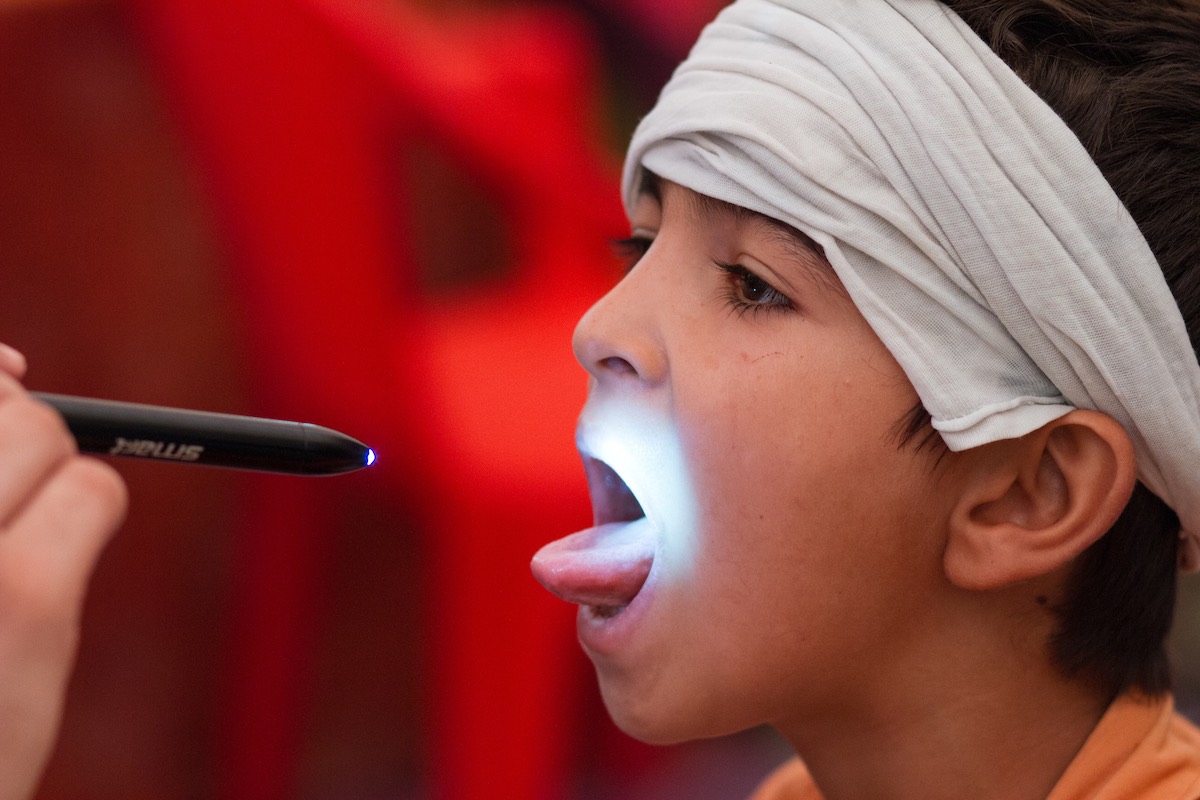
Mending More Than Just Physical Wounds
In many ways, the health clinics we support across ISIS-affected areas function like urgent care walk-in clinics in America. But they become hubs for so much more—caring not only for patient’s physical needs, but also their psychological and economic needs.
We work with our clinics to provide families with food packs in areas where food is scarce. We distribute hygiene kits through the clinics, so families can reduce their exposure to conditions like scabies and lice. Health clinics have even become hubs for identifying potential recipients for new business grants—creating jobs for parents in need so they can better care for their families.
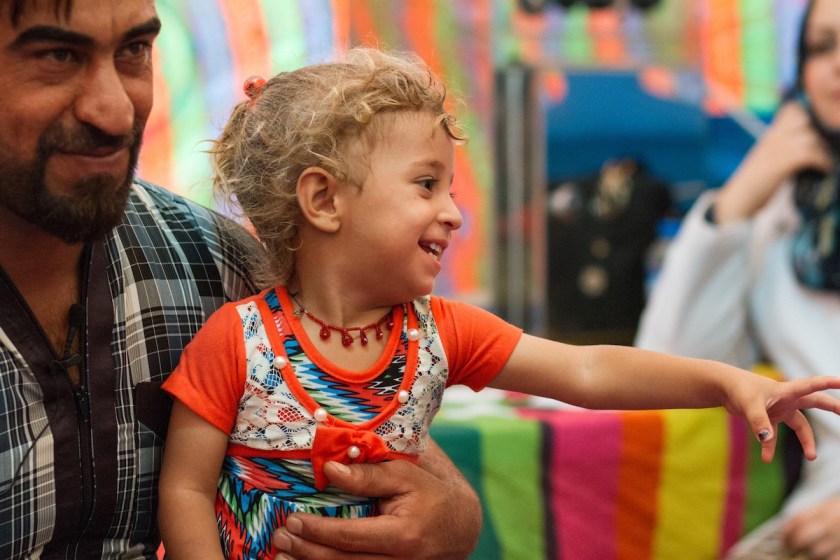
I asked Dr. Mustafa if he ever imagined practicing medicine in a tent in a displacement camp.
“I never imagined that. Never, never. I would not have imagined that in a million years.” He laughed, then grew serious. “Life is more valuable than money. I don’t want to waste my life on money, I just want to waste it on something useful.”
“The tent made a doctor out of me.”

